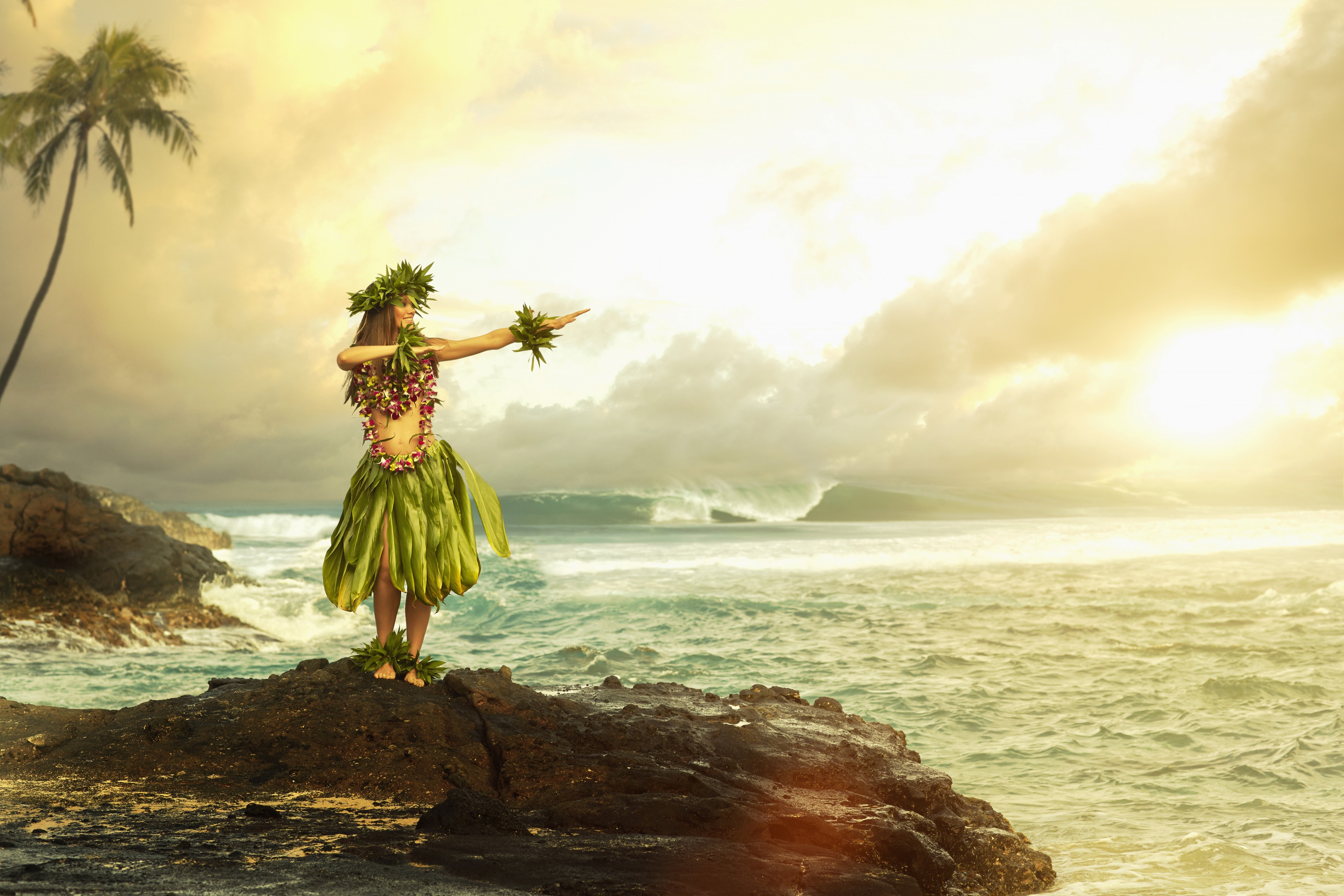This ancient Hawaiian philosophy will change your life and make the world a better place
Let's talk about "aloha"


A free daily email with the biggest news stories of the day – and the best features from TheWeek.com
You are now subscribed
Your newsletter sign-up was successful
The world seems kind of depressing these days, doesn't it? Implosion in the Middle East. Xenophobia in the West. Greed, terrorism, climate change, terrifying viruses, the 2016 presidential race. It's enough to make you want to pull the covers over your head and never get out of bed. To which I say, aloha.
During tough times like these, humanity could benefit from this ancient Hawaiian philosophy. Now, most mainland Americans think "aloha" means "hello," "goodbye," or sometimes "love," and all of that is true. But it also means much, much more. The late Haleaka Iolani Pule, a Hawaiian historian and healer, called aloha the "symbiotic relationship and an acknowledgement of that relationship you have with everything in the universe around you, and recognizing exactly what your space within that is."
I know what you're thinking: That sounds like some bizarre new-age philosophy. But bear with me. There's some good social science in aloha; it just needs to be unpacked a little.
The Week
Escape your echo chamber. Get the facts behind the news, plus analysis from multiple perspectives.

Sign up for The Week's Free Newsletters
From our morning news briefing to a weekly Good News Newsletter, get the best of The Week delivered directly to your inbox.
From our morning news briefing to a weekly Good News Newsletter, get the best of The Week delivered directly to your inbox.
When I first moved to Hawaii from the mainland, my limited understanding of aloha was summed up in a general impression of "nice-ness." "How nice everyone is here," I would say to my husband. In Hawaii, drivers wave each other through traffic, and no one (except the occasional tourist) uses a car horn, even though Honolulu has some of the worst traffic in the country.
"She's so nice," I would think about Carol, the checkout clerk at Safeway who seemed really interested in why I favored a particular brand of dish soap. Aloha meant Carol knew our new hanai daughter from China had dietary preferences that sometimes baffled me. It's why Carol let me know whenever there was a sale on frozen hashed browns. Aloha made me privy to the fact that Carol hurt her arm on the job, and why I was able to contribute to her get-well present.
Indeed, this "nice-ness" is a direct result of aloha. People in my adopted island home talk about "driving with aloha," "speaking with aloha," and even "working out with aloha," which, according to the sign at my gym, means sharing equipment and wiping it down after use.
Aloha is manifest in the strong, full kiss you get on the face whenever you meet someone in Hawaii. It is the genuine interest in others implicit in the Hawaiian tradition of engaging in friendly and personal conversation, or "talking story," over every encounter. These practices can surprise (and sometimes irritate) newcomers; after all, in many cultures, people don't like to be kissed by strangers, and when you're in a hurry, answering the postal clerk's curious questions about the son to whom you are sending a package can be a little maddening.
A free daily email with the biggest news stories of the day – and the best features from TheWeek.com
But these practices — and the aloha that drives them — literally force humans to connect with each other. And when you are connected with others, it's hard to follow the very human instinct to put yourself and your biological family above others. By extension, aloha connects humans with the natural world, putting individual humans into context with animals, plants, and the Earth.
Over time, I began to understand just how powerful a social construct aloha really is. It is subjugating the urge to benefit oneself at risk of upsetting the delicate balance of life. It helps us get along. And on a densely populated island with an incredibly diverse population, getting along is key to survival.
Aloha allowed the ancient Hawaiians to not only survive, but to thrive for thousands of years, even though they were a numerous, sophisticated people living on very small islands with very limited resources. Aloha works, even when things seem terrible. Especially when things seem terrible.
Haleaka Iolani Pule described a conversation she once had with her grandmother about the 18th century "discovery" of the Hawaiian Islands by Captain James Cook — which was, by all accounts, the beginning of the end of Native Hawaiian sovereignty and a tragic turn of events for the Hawaiians themselves. When Pule asked her elder how she could reconcile the concept of aloha with the tremendous harm done to the Hawaiian people, she was told: "How else will the world learn about aloha? How else will we remember that it is our innate sense to love things unconditionally?"
So yeah. The world seems pretty depressing right now. But where there are humans, and the practices they develop to survive, there is hope.
Aloha.
Leslie Turnbull is a Harvard-educated anthropologist with over 20 years' experience as a development officer and consultant. She cares for three children, two dogs, and one husband. When not sticking her nose into other peoples' business, she enjoys surfing, cooking, and writing (often bad) poetry.
-
 The Olympic timekeepers keeping the Games on track
The Olympic timekeepers keeping the Games on trackUnder the Radar Swiss watchmaking giant Omega has been at the finish line of every Olympic Games for nearly 100 years
-
 Will increasing tensions with Iran boil over into war?
Will increasing tensions with Iran boil over into war?Today’s Big Question President Donald Trump has recently been threatening the country
-
 Corruption: The spy sheikh and the president
Corruption: The spy sheikh and the presidentFeature Trump is at the center of another scandal
